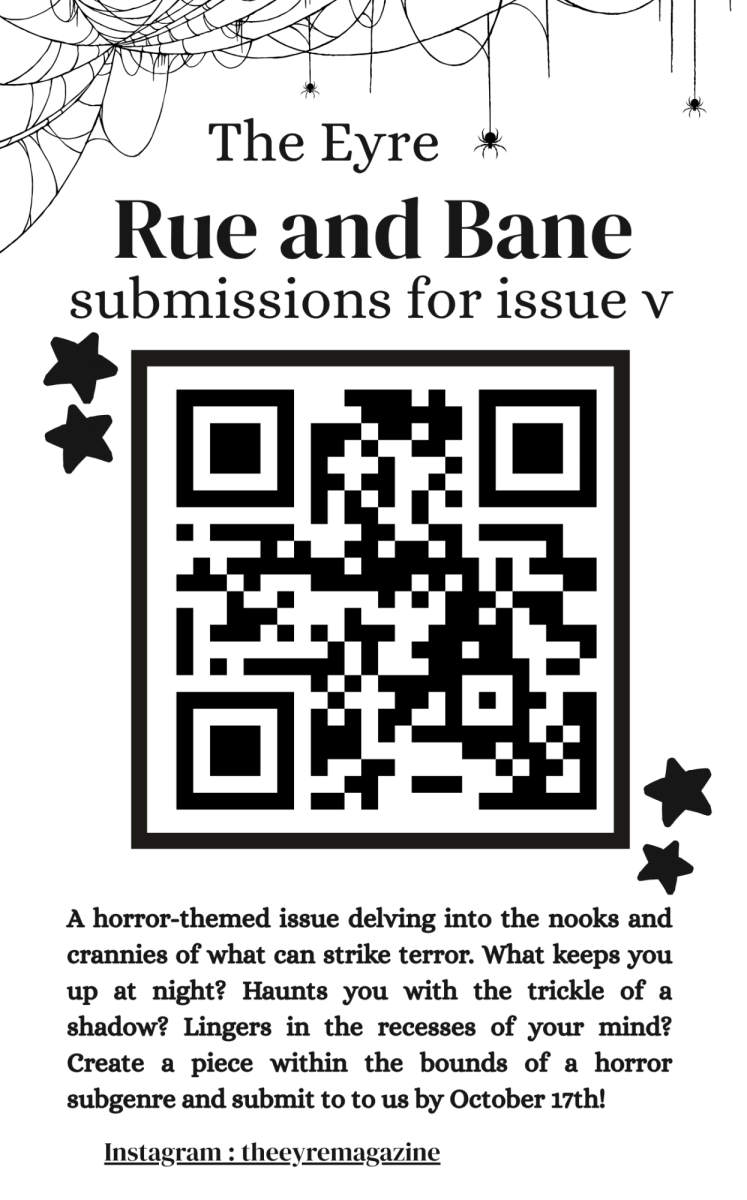Absurdism
“To live without appeal”
As I approach the precipice of adolescence, leaning on the very cliff before adulthood, I find myself in quite the unnerving position. Usually, my bulldozing, unearned confidence would just send me flying over the edge, neglecting to look down. But, it seems my mid-life crisis has come a couple decades early, and its daunting presence has led me to believe the moment I walk off that very ledge, instead of falling into the comforting waters of future opportunity, I will only end up drowning in an eternal abyss of nothingness.
As you might assume, this feeling of existential dread is not the most pleasant way to start off your senior year. But here I am. As I find myself in search of a seemingly unattainable purpose and in the face of college applications and inevitable hardships over the next six months, my motivation only sinks lower. The tantalizing prospect of meaning haunts me and I find little comfort in the hunt: an overwhelming fear consuming me that I’ll find nothing in the end.
What else should soothe me then, but a thin copy of The Stranger. I had read it once in middle school, a long time ago, and at the time I didn’t really understand it. Now, in the face of an AP Literature summer assignment, I was once more urged to flip through Albert Camus’ theory of Absurdism. This theory describes the human condition to be inherently “absurd” and irrational, making life lacking any kind of ascertainable meaning. Camus theorizes that in reaction to this, an individual can either choose suicide, a “leap of faith” (a belief to the divine, or as he defines it, the illogical), or simply, acceptance. Meursault, the protagonist of The Stranger, chooses the last option before his death row execution, embracing the absurdity of life. He comes to the realization that we will all die anyway, our lives being built on no defined purpose, and therefore rendering it utterly pointless. Meursault finds comfort in such a fact.
My younger self did not understand this. How could one find solace in nothingness? There has to be a reason I am alive. What other point would there be to everything I’ve done thus far?
But, strangely, as I contemplated this, I found that accepting the absurdity of it all resonates with me. There is a certain freedom in welcoming the irrationality of life. I no longer have to fear the nothingness that is, perhaps, closing in on me because the sheer acceptance of such a fact removes the anxiety of its arrival. “To live without appeal,” as Camus puts it, allows individuals to stop seeking purpose, and rather, grants them the liberty to create their own.
Perhaps, that’s what I need to do. To construct meaning in my own life, rather than seeking some sort of predestined one. In hopes that I may mold my own outlook by the end of the year, I want to wade through the many different theories of philosophers who have preceded me, contemplating their convoluted thoughts about morality to form my own assessment about what my future has to offer.
The long, winding road ahead still fills me with some trepidation, but the control to forge my own path amongst this forest of uncertainty has overwhelmed that nervousness with nikhedonia. Rather than a passive search, I have started the pursuit. The pursuit of meaning.






